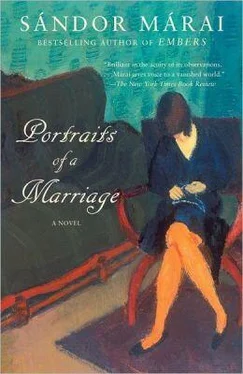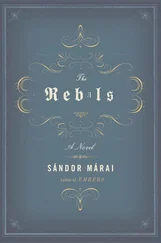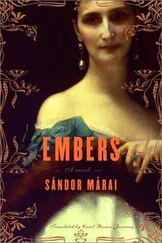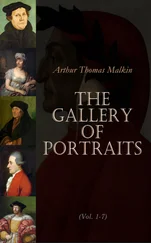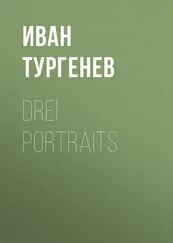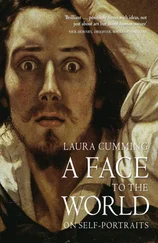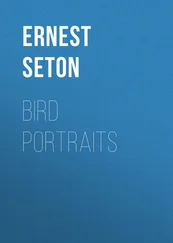By the third year I knew our marriage was in deep trouble. My husband treated me with courtesy and tenderness. He loved me. He did not cheat on me. He was not involved with any other woman, only with me. And yet — please look away a moment, I think I am blushing — I felt that in the first three years of marriage, and especially in the last two of being together, that I was not so much his wife as …
He loved me, no question about it. But at the same time it was as if he were merely tolerating me in his house, in his very life. There was patience and tolerance in his manner, but it was as though he had no choice in that matter and he’d simply resigned himself to living with me, to sharing a home with me, sharing one room of his life. That’s how it felt. He carried on talking to me as charming and affectionate as ever, taking off his glasses, listening, giving advice, sometimes even joking, and we’d go to the theater and lead a social life — and I’d watch him lean back, his arms folded, taking good-natured stock of the others, with just a hint of suspicion visible in his mocking, doubtful expression. Because he did not entirely yield himself to others, either. He listened to them seriously, fully sensible of his obligations to them, then answered them politely; but there was in his voice, I saw, a patronizing note, a certain pity, as if he did not quite believe them, as if he was aware that under even the most sincere human declarations there remained unarticulated layers of despair, fury, lies, and ignorance. It wasn’t something he could actually tell people, of course, and that was why he listened through to them with that deprecating forbearance, with that serious skeptical expression, smiling occasionally and shaking his head, as if telling the other person: “Do carry on. I know what I know.”
You were asking me earlier if I loved him. I suffered a great deal with him. But I know I loved him — and I even know why I loved him … I loved him because he was sad and solitary; because he was beyond anyone’s help, even mine. But it took a long time, and a lot of suffering, before I realized and understood this. For years I thought he was looking down on me, that he had a low opinion of me … but it was something else.
At forty years of age that man was as isolated as a monk in the desert. We lived in a world capital, in fine style, with many acquaintances, part of a considerable society. It just so happened that we were alone.
Just once I saw him in a different light, just once and for a moment only. It was the moment the child was born, when that pale, sad, lonely figure was first allowed into the room. He entered awkwardly, as if he were taking part in a scene that was deeply embarrassing, overfamiliarly human, as if he were a little ashamed to be an actor in it. He stopped by the crib, leaned forward uncertainly, his hands clasped behind his back as usual, wary and reserved. I was exhausted at the time but I watched him very closely. He leaned over the crib and then, for a moment, that pale face of his lit up with some inner glow. But he didn’t say anything. He gazed at the baby for a long time, for maybe twenty minutes in all, without moving. Then he came over, put his hand on my brow and stood silently by my bed. He didn’t look at me but stared out of the window. It was dawn on a foggy October day. He stayed by my bed a while longer, stroking my brow. His palm was hot. The next moment he was talking to the doctor. It was as if he had abruptly finished one conversation and started another, with a different subject.
But now I know that in that moment, perhaps for the first and last time in his life, he was happy. He might even have considered revealing something of the secret he called his humanity. While the child was alive he talked to me differently, with a greater intimacy, but I still felt I was not entirely part of him. I know there are people who struggle desperately to overcome a kind of inner resistance, some blend of pride, fear, sensitivity, and uncertainty, that won’t let them join the crowd like the others. But he would, up to a point at least, for a while, have made his peace with the world for the sake of the child. I could see him struggling with himself and was filled with a kind of crazy hope while the child was alive. He was trying to change his nature, to domicile it the way a circus trainer tames a lion. Silent and proud and sad as he was, he was doing his best to be humble and obedient. He’d bring me presents, for example. It was enough to make me weep the way this newly “humble” man — a man who’d always been ashamed to bring me little presents for Christmas or my birthday but insisted on something expensive like a pleasure cruise, a fur coat, a new car, or jewelry — now started bringing me what I had really been missing, touching little gifts hardly worth anything, such as a bag of hot chestnuts he’d bought on the way home, sweets, and so on. Up till that time I’d had the best of everything: the best doctors, the finest nursery, and this wonderful ring I am wearing now. Yes, it is valuable. But now he’d arrive home wearing a shy smile and clumsily unwrap a little package containing, say, a delicately crocheted baby’s jacket and bonnet. He’d put it down on the nursery table, give a brief, apologetic smile, then quickly leave the room.
I tell you I could have wept at those times. Wept with joy and hope.
But there was another feeling too, an important part of the complex whole, and that was fear. It was the fear that he would not win the struggle, that he could not overcome himself, that neither of us could manage our lives, not even with the help of the baby. It was the fear that there was something not right about all this. But what could it be? … I’d go to church and pray. Help me, God! I pleaded. But God knows that the only help we can receive is that which we ourselves give.
But he certainly struggled with himself while the child lived.
I can see you’re impatient. You ask me what the problem was between us. You want to know what kind of man my husband really was … It’s a hard question, darling. I have been puzzling over it for eight years. Even after we parted I continued puzzling. Now and then I think I finally have the truth. But it’s made up of entirely unreliable pieces of guesswork. I can’t name the disease: I can only tell you the symptoms.
You asked me if he loved me? … Well, yes, he loved me. But I think he only truly loved his father and his son.
He cared for his father and was full of respect for him. He visited him every week. My mother-in-law dined with us each week. “Mother-in-law”: there’s something nasty about the word. But this woman, my husband’s mother, was one of the most refined creatures I had ever met. When father-in-law died and when this wealthy, highly elegant woman was left alone in the big house, I feared she would get too used to us. People are so prejudiced. But she was all sensitivity, all consideration. She moved into a small apartment, was a burden on no one, and managed all the difficult, fiddly bits of her life by herself with considerable care and foresight. She asked for neither pity nor kindness. Of course she knew things about her son that I couldn’t know. Only mothers know the truth. She knew her son was tender, respectful, and attentive; it was just that she didn’t love him. Such a terrible thing! But we should consider it calmly, because that is what I got used to with my husband — it was something we both learned from Lázár: that the truth had a certain creative, cleansing power. There was never any argument or disagreement between those two, between mother and child. “Mother dear,” said he, and “Yes, dear son,” she answered. There was always that ritual of kissing hands, a certain formal courtesy, if you like. But there was never any intimacy. The two never spent any time alone in a room together; one was always standing up and finding something else to do elsewhere, or inviting someone in to join them. They feared being left alone together, as if there were some urgent matter that they’d immediately have to discuss and there would be trouble, real trouble, if their secret was revealed, some secret that they, mother and son, could never talk about. That’s what I felt, anyway. Was it really like that? I sometimes wondered. But yes, that’s how it was.
Читать дальше
